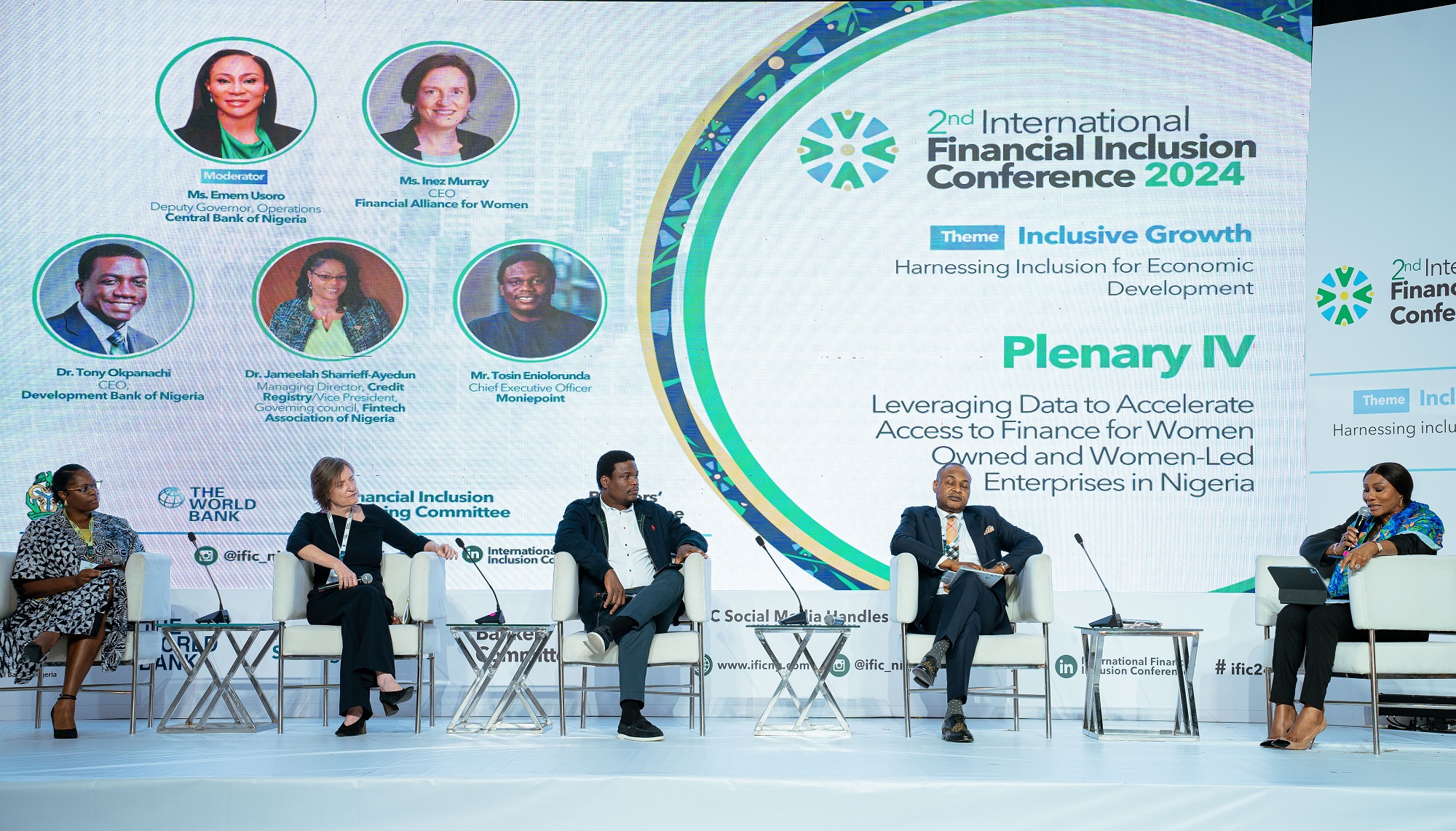For financial inclusion to be sustainable, especially for women, it must no longer be treated as a buzzword, charitable social activity or a checklist to be marked.
It must be rooted in economic and business activities that are well underlined by data considering that it is actually more profitable to serve women.
This was the thrust of an engaging plenary session, Leveraging Data to Accelerate Access to Finance for Woman Owned and Women-Led Enterprises in Nigeria which was moderated by the Deputy Governor, Operations, Central Bank of Nigeria Ms. Emem Usoro, at the second edition of the International Financial Inclusion Conference 2024 organized by the Central Bank of Nigeria and other critical stakeholders with the theme “Inclusive Growth: Harnessing Financial Inclusion for Economic Development.
The conference brought together a rich line-up of global thought leaders, industry practitioners, and key stakeholders to discuss pressing issues around how to accelerate financial inclusion in Nigeria and showcase Nigeria’s progress on gender inclusive financing, spotlight innovative solutions for inclusion, and how to deepen financing and capacity building of Micro, Small and Medium Enterprises (MSMEs) as catalysts of economic growth.
Tosin Eniolorunda, chief executive officer and founder of Moniepoint Inc noted that financial service providers play a vital role in supporting gender-inclusive finance and that by collecting and analyzing data on gender trends in small business performance, they can craft better policies, targeted products, and support services that encourage more women entrepreneurs.
Drawing from data curated from the Moniepoint platform, he averred that “women-owned businesses are more likely to stay active and show higher engagement rates in financial transactions.” In cases where financial support has been extended—through investments, KYC compliance, or the provision of tools like point-of-sale devices—female-led businesses have a 7.2 percent higher activity rate than their male counterparts while looking at the gender relations with credit products, “women-owned businesses have an 87.5 percent lower loan non-performance rate (NPL) than male-owned enterprises.”
Eniolorunda also made a case for the economic potential of investing in women entrepreneurs, who have proven to be diligent and enhance profitability while calling stakeholders to pay attention to the need to drive financial inclusion in the Northern part of the country.
He continued, “Data is the new oil,” and its application in the financial sector could be transformative for women-led businesses.
Echoing similar sentiments, Chief Executive Officer, Credit Registry, Dr. Jameelah Sharrieff-Ayedun said that, ”90% of women’s income that they receive goes back to the communities and their families as such when women have access to credit, the community is enhanced, families are better off which is why it’s important that they can access this funding.”
Other panelists included Chief Executive Officer, Financial Alliance for Women, Inez Murray, and the Chief Operating Officer, Development Bank of Nigeria, Bonaventure Okhaimo who expressed belief that creating an enabling environment, with increased investor participation coupled with the willingness of other stakeholders to sit around the table and have frank conversations will move the needle on financial inclusion for women owned businesses.
In her summation, Deputy Governor, Operations, Central Bank of Nigeria Ms. Emem Usoro acknowledged some of the structural challenges that might require time and resources to be addressed including cultural practices and less systemic ones such as distance to financial services providers that stifle the participation of women owned businesses, while signposting the power of data to serve as a catalyst for inclusive growth and its viability for economic planning .
It will be recalled that the inaugural IFIC which was held in Abuja in November 2022, focused on Nigeria’s achievements since the launch of the National Financial Inclusion Strategy (NFIS) in 2012 even as it highlighted the scaling of innovative digital models in the rapidly evolving financial services landscape.
![]()






























































